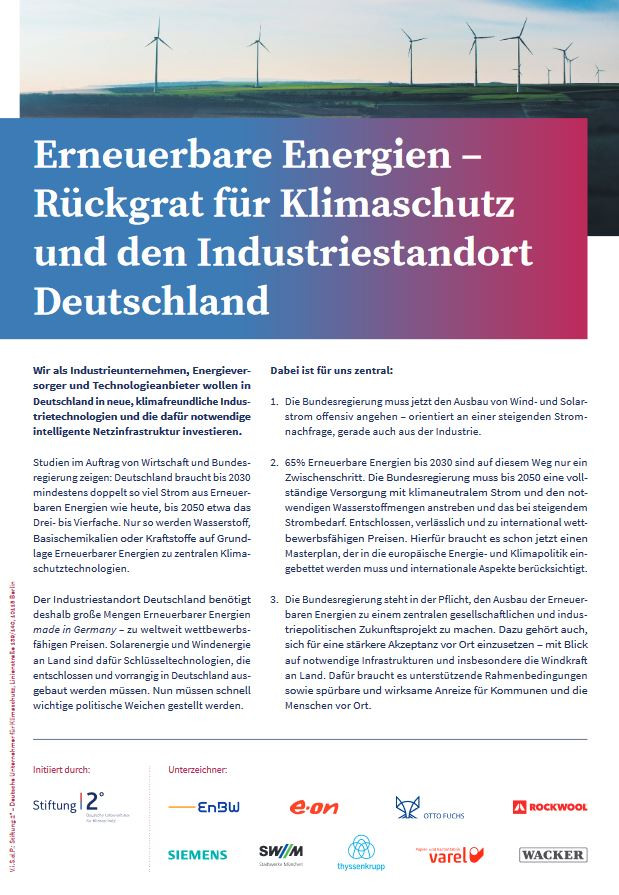Energy-intensive companies call for 'aggressive' renewables roll-out
An alliance of prominent energy-intensive companies has called on the German government to boost the stuttering roll-out of renewables. In a newspaper advert entitled "Renewable energies – Backbone for climate protection and Germany as an industrial location," engineering conglomerate Siemens, steelmaker Thyssenkrupp, chemicals maker Wacker, construction material specialist Rockwool, paper producer Varel, as well as utilities EnBW and E.ON say that "the government must now aggressively boost the roll-out of wind and solar power" to ensure a "complete supply with climate-neutral power and the necessary amounts of hydrogen by 2050." In the initiative organised by Foundation 2°C – an alliance of CEOs, managers and family-run businesses that supports the government in establishing market-oriented framework conditions for climate action –, the companies argue that "the federal government has a duty to make the expansion of renewable energies a central social and industrial policy project for the future."
The companies say that Germany will need twice as much renewable power in 2030 as today, and three to four times as much in 2050. "That's the only way to make hydrogen, basic chemicals or fuels on the basis of renewable energies key technologies for climate protection." Patrick Graichen, head of the energy policy think tank Agora Energiewende*, called the advert "remarkable." In a Twitter message, he added that the companies push for a dramatic increase of renewables "because this is the only way they can secure cheap power."
German industry bets on large amounts of renewable electricity and green hydrogen – which will have to be made using even more green electricity – in order to become climate-neutral. But especially the roll-out of onshore wind energy has almost ground to a standstill in Germany this year because of public resistance and regulatory hurdles. Additionally, the government has tabled plans to tighten distance rules for wind turbines, which would further limit their expansion. The plans have met fierce resistance from industry, unions and climate activists, who say the proposed rules would make it impossible for Germany to reach its target of increasing the share of renewables in power consumption to 65 percent by 2030.


